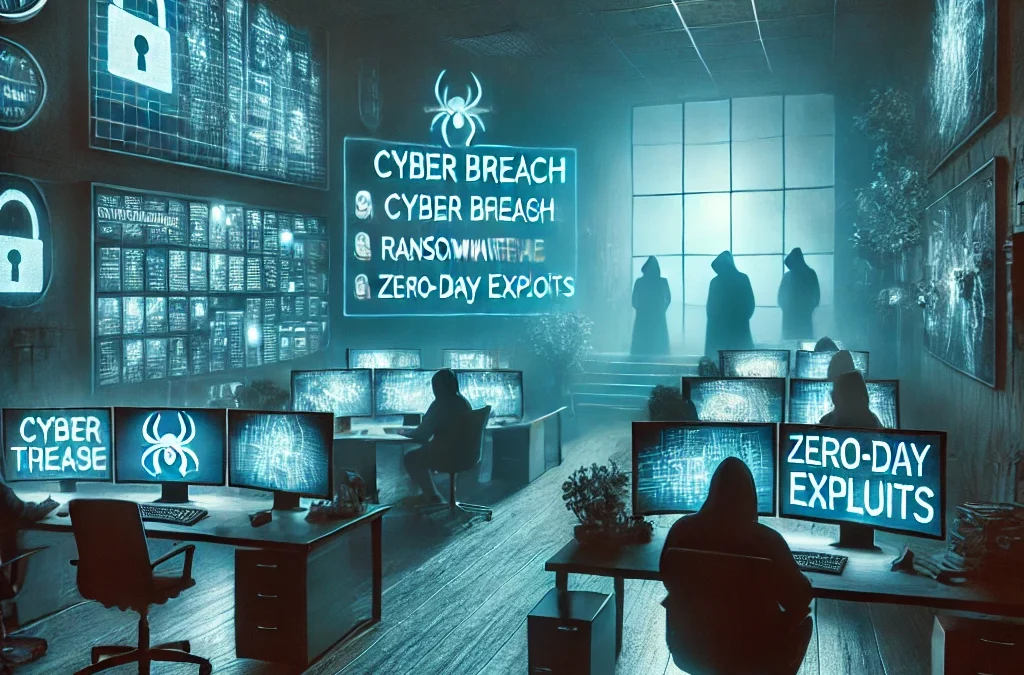Did you say Cybersecurity Insurance in Switzerland?
Ensuring Comprehensive Coverage: The Need for Modern Cybersecurity Insurance in Switzerland
Understanding the Complexities of Modern Cyber Threats
The rapidly evolving landscape of cyber threats poses a significant challenge to businesses worldwide, including those in Switzerland. As cybercriminals become increasingly sophisticated, traditional cybersecurity insurance policies may no longer offer adequate protection. This is especially true as new types of attacks, such as ransomware and zero-day exploits, have surged in recent years. These threats can cripple a business, leading to severe financial and operational repercussions. Therefore, it is crucial for companies to ensure that their cybersecurity insurance policies are not only comprehensive but also adaptable to emerging risks.
Ransomware attacks, for instance, have grown exponentially, with businesses in major hubs like Riyadh, Dubai, and Zurich often targeted due to their strategic importance. In such an environment, insurance policies that do not explicitly cover the nuances of these modern threats leave businesses vulnerable. This is particularly concerning given that ransomware incidents alone can account for nearly 20% of all cyber insurance claims. Zero-day exploits further complicate this landscape, as they exploit unknown vulnerabilities, making them challenging to defend against with standard security measures.
The experiences shared by many businesses in Switzerland, including The Swiss Quality Consulting GmbH, highlight the importance of regularly reviewing and updating cybersecurity insurance. By doing so, companies can ensure that they are adequately protected against the full spectrum of cyber threats, thereby safeguarding their operations and reputation. In an interconnected world where a single breach can have widespread consequences, having robust, modern cyber insurance is not just advisable; it is imperative.
Why Traditional Policies Fall Short in Today’s Cybersecurity Landscape
Traditional cybersecurity insurance policies, while once sufficient, are increasingly inadequate in the face of today’s cyber threats. Businesses in Switzerland, particularly those in technologically advanced sectors like finance and consulting, must be aware of the limitations of these policies. As cyber threats evolve, so too must the strategies used to mitigate them. However, many businesses continue to rely on outdated policies that fail to address the latest risks, such as those associated with blockchain technologies, the metaverse, and the use of artificial intelligence.
In the context of the United Arab Emirates and Saudi Arabia, where innovation is a key driver of economic growth, the adoption of cutting-edge technologies is common. However, this also increases the risk of exposure to new cyber threats. For example, the rise of blockchain technology, while offering unprecedented security for transactions, also introduces unique vulnerabilities that traditional insurance policies may not cover. Similarly, the burgeoning metaverse represents a new frontier for cybercrime, where digital assets and identities are at risk.
Generative Artificial Intelligence (AI) is another area where traditional policies may fall short. As businesses increasingly integrate AI into their operations, the potential for AI-driven cyberattacks grows. These sophisticated attacks can bypass conventional security measures, making it essential for businesses to ensure their insurance policies explicitly cover such scenarios. In Switzerland, where the reliance on AI is growing, companies must advocate for policies that recognize and protect against these emerging threats.
Strategies for Ensuring Adequate Cybersecurity Coverage
Given the dynamic nature of cyber threats, businesses must adopt proactive strategies to ensure their cybersecurity insurance is comprehensive and up-to-date. One effective approach is to work closely with insurance providers to regularly review and update policies. This includes a thorough assessment of the coverage provided against modern threats such as ransomware, zero-day exploits, and AI-driven attacks. For businesses in Switzerland, engaging in such proactive measures is critical to maintaining resilience in the face of evolving risks.
Executive coaching services and change management are integral to this process. Leaders must be equipped with the knowledge and skills to navigate the complexities of cybersecurity risk management. By fostering a culture of continuous learning and adaptability, businesses can better anticipate and respond to emerging threats. In Riyadh and Dubai, where rapid technological advancements are common, executive coaching has proven to be a valuable tool in helping leaders stay ahead of the curve.
Additionally, effective communication within the organization is crucial. Leaders must ensure that all stakeholders understand the importance of comprehensive cybersecurity coverage and are aware of the potential risks of inadequate insurance. This includes regular training and updates on the latest cyber threats, as well as clear guidelines on how to respond in the event of a breach. By promoting a culture of awareness and preparedness, businesses can significantly reduce the likelihood of falling victim to cyberattacks.
The Role of Emerging Technologies in Shaping Cybersecurity Insurance
Emerging technologies such as blockchain, the metaverse, and AI are reshaping the landscape of cybersecurity and, by extension, cybersecurity insurance. As these technologies become more prevalent in business operations, they introduce new risks that must be accounted for in insurance policies. For example, blockchain technology, while secure, can still be vulnerable to specific types of attacks, such as 51% attacks or smart contract vulnerabilities. Cybersecurity insurance policies must evolve to cover these unique risks adequately.
In the metaverse, where digital assets and identities are becoming increasingly valuable, the potential for cybercrime is significant. Businesses operating within this space, particularly in forward-thinking cities like Dubai and Riyadh, must ensure that their cybersecurity insurance policies protect against the theft or loss of digital assets. This includes coverage for cyber extortion, identity theft, and the unauthorized access or use of digital assets within the metaverse.
AI and Generative AI also present unique challenges for cybersecurity insurance. As these technologies are increasingly used to automate business processes and enhance decision-making, they also become targets for cyberattacks. Insurance policies must, therefore, be updated to include coverage for AI-driven attacks, including those that exploit vulnerabilities in AI algorithms or leverage AI to carry out sophisticated phishing attacks. In Switzerland, where AI adoption is on the rise, businesses must ensure their insurance policies are as advanced as the technologies they use.
The Importance of Leadership in Cybersecurity Insurance Decisions
Effective leadership is crucial in ensuring that a business’s cybersecurity insurance policy is both comprehensive and current. Leaders must be well-versed in the latest cyber threats and understand the limitations of traditional insurance policies. This knowledge is essential for making informed decisions about the types of coverage required to protect the business fully. In Switzerland, where regulatory requirements and business environments are constantly evolving, strong leadership in this area can make the difference between resilience and vulnerability.
Executive coaching and management consulting services can play a vital role in enhancing leaders’ understanding of cybersecurity risks. By providing tailored guidance and support, these services can help leaders develop the skills and knowledge necessary to navigate the complexities of cybersecurity insurance. In regions like Riyadh and Dubai, where rapid economic development is coupled with increasing cyber threats, such services are invaluable in helping businesses stay ahead of potential risks.
Moreover, project management skills are essential in implementing and maintaining effective cybersecurity insurance coverage. Leaders must oversee the integration of insurance policies with the company’s overall risk management strategy, ensuring that all aspects of the business are adequately protected. This includes coordinating with various departments to ensure that the policy covers all relevant risks and that employees are aware of their roles in maintaining cybersecurity. In this way, leadership becomes the cornerstone of effective cybersecurity insurance management.
Conclusion: Securing the Future with Comprehensive Cybersecurity Insurance
In conclusion, businesses in Switzerland and beyond must recognize the importance of having a comprehensive and up-to-date cybersecurity insurance policy. As the threat landscape continues to evolve, so too must the strategies used to protect against these risks. Traditional insurance policies may no longer be sufficient in covering the full range of modern threats, such as ransomware, zero-day exploits, and AI-driven attacks. Therefore, businesses must take proactive steps to review and update their policies regularly.
By leveraging emerging technologies and adopting a forward-thinking approach to cybersecurity insurance, businesses can better protect themselves against the growing array of cyber threats. This is particularly important in regions like Riyadh, Dubai, and Zurich, where technological innovation is a key driver of economic growth. Ensuring that insurance policies are aligned with the latest developments in cyber risk management is crucial for maintaining business resilience in these dynamic environments.
Finally, strong leadership, supported by executive coaching and management consulting services, is essential in navigating the complexities of cybersecurity insurance. Leaders must be equipped with the knowledge and skills necessary to make informed decisions about their insurance coverage, ensuring that all aspects of the business are adequately protected. In doing so, businesses can secure their future against the ever-present threat of cybercrime.
#CybersecurityInsurance #SwitzerlandBusiness #AIinCybersecurity #BlockchainInsurance #MetaverseInsurance #ExecutiveCoaching #ChangeManagement #LeadershipSkills #ProjectManagement #DubaiBusiness #RiyadhBusiness









